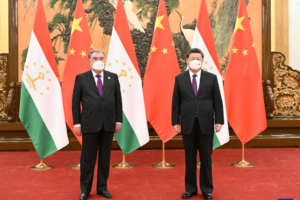The state auditor’s office is trying a different tactic in dealing with Hawaii’s beleaguered beverage container recycling program this year.
The auditor’s office is legally required to review the state’s beverage container recycling program every two years as a result of the program’s persistent problems. But recommendations from the 2021 audit still haven’t been implemented.
Instead, the latest biennial audit, released on June 30, details improvements being undertaken by the Hawaii Department of Health’s office of solid waste management, which oversees the program. The office previously had recommended that the agency address understaffing and develop processes to combat fraud.
However, one of the main complaints about the program — that it relies on self-reported data to track the funds it is owed by beverage distributors or owes to redemption centers — remains unchanged.

“If the department isn’t doing anything, there’s nothing for us to assess,” said State Auditor Les Kondo.
The office has issued nine reports on the program since 2005, and it has been a recurring finding that the program “is not being run efficiently or effectively,” Kondo said.
The Deposit Beverage Container Program was established in 2002 to encourage recycling and reduce litter by charging consumers a 5 cent deposit that is refunded when the plastic bottles or aluminum cans are returned to a redemption center. Oahu has 24 redemption centers.
The program had nearly $33 million in revenues, including $22.5 million in unredeemed deposits, in the fiscal year ending June 30, 2022, according to the financial statement audit.
“Providing opportunities for people to redeem containers and redeem packaging … is a really important thing,” said Kristine Kubat, executive director of Recycle Hawaii, a nonprofit organization focused on climate action. “How well the program works or doesn’t work,” is “up for debate,” she said.
The fact that the program relies on self-reported data to track funds provides a financial incentive to misreport the data, which has made the program susceptible to fraud since the beginning, according to a 2015 audit.
Underscoring the problem, the office found that Whole Foods Market had been depositing 6 cents per case instead of 6 cents per container over a six-year period, according to the 2015 report. It also reported in 2019 that two discrepancies had occurred at the Reynolds Recycling location on University Avenue, resulting in a higher reimbursement to the location.
“They had no process in place and relied entirely upon whatever was being submitted to them,” Kondo said.
DOH’s plan to address this issue includes revising the redemption center certification process, increasing the frequency of redemption center inspections and requiring distributors to submit third-party audits to verify payment reports, according to the latest report.
Michael Burke, the solid waste management coordinator at the DOH office of solid waste management, said his office is “working on developing administrative rules first,” before putting those processes into place. He expects the rules to be formulated by the end of the year.

Burke said the office is “hammering on recruitment and bringing people aboard” to tackle understaffing and developing an online system to report and manage data. The system has been delayed, however, because the vendor has been redirected to work on a DOH project related to the fuel spill at the Navy’s Red Hill storage facility, he said.
Kondo speculates that “part of the reason why the program hasn’t looked at the concerns more closely is the fund has been growing,” and “will continue to grow.” The fund’s balance was more than $57 million as of June 30, 2022, up from more than $50 million in the 2021 report.
A report from December 2021 revealed that DOH management felt it shouldn’t be responsible for overseeing the program, but the department’s attitude has since changed, according to Burke. It’s now “committed to improving this program and regaining the public’s trust,” he said.
Kondo emphasized a pressing need for buy-in from upper management to improve the program.
“They need to be accountable for state money,” he said.
Source: CivilBeat











